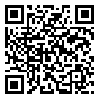BibTeX | RIS | EndNote | Medlars | ProCite | Reference Manager | RefWorks
Send citation to:
URL: http://rjms.iums.ac.ir/article-1-2263-en.html
2- Sabzevar University of Medical Sciences
Background : The etiolog y, pathophysiology and treatment of Peyronie’s disease remain unknown. Few medical therapies have positive effect on this condition. However, penile curvature is the major symptom of Peyronie’s disease, which can be treated by surgical reconstruction. There are many surgical techniques for correcting penile deformity but ther e is the lack of a gold standard procedure. We present a surgical technique to correct penile deformity in Peyronie’s disease.
Methods: In this case series study, w e treated 14 patients with stable Peyronie’s disease with significant curvature that precluded intercourse. We excised the fibrous area and the gap wa s covered with a graft removed from the crural segment of the corpora cavernosa.
Results: In 3, 6 and 12 months follow-up there were straightening of penis in 92.8, 92.8 and
78. 2% of patients and acceptable erectile function in 100, 92.8 and 85.7% , respectively . Thirteen and eleven of 14 patients were satisfactory with the cosmetic and functional result of surgery , respectively . No severe perioperative complication was noted.
Conclusion: Present technique may be consider ed as a treatment option in patients with curvature due to Peyronie’s disease. Tunica albuginea auto graft from crural segment seems to be an appropriate grafting material for this technique.





